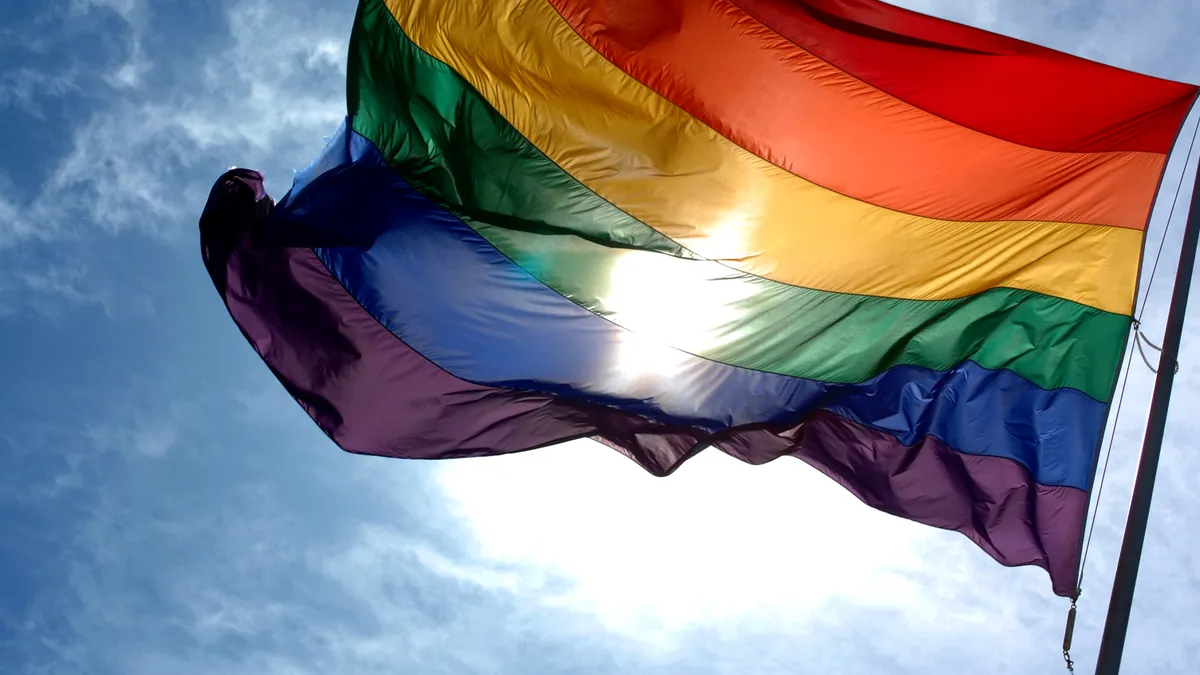The founders of the new LGBT+-focused Daylight, which launches next month, are building a neobank for a market they believe has not been adequately served by traditional banks.
"There are lots of ways in which the system is stacked against us, and we're tired of it," said Daylight CEO Rob Curtis, who co-founded the digital bank alongside Billie Simmons, Daylight's chief of staff. "We've decided to take matters into our own hands."
Curtis and Simmons said their new digital bank will fill the financial services gap facing members of the lesbian, gay, bisexual and transgender community, a demographic with unique financial needs.
"Money is freedom for LGBT people," said Curtis, who served as managing director for the gay dating platform Gaydar, as well as co-founder of the LGBT mental health site Helsa, before launching Daylight.
"It costs more to be LGBT," he said, adding an LGBT person has 50% more student debt, on average, than a straight individual. "We are subject to higher one-off costs and we have less family support. If you come out to your family, you're about 40% less likely to have financial support from that point onward. ... So, we're starting on the backfoot."
Daylight, which is launching in partnership with Visa as part of the credit card company's Fintech Fast Track program, will offer members a personalized feed of expert financial advice and resources unique to the LGBT+ community, Curtis said.
Daylight customers will be able to access a network of financial coaches specializing in LGBT+ money management and life events, such as expanding one's family and gender-affirming surgery.
More than 63% of LGBT+ millennials want to expand their family, according to the Family Equality Council, but surrogacy, in-vitro fertilization (IVF) and adoption can cost more than $55,000 per child, Daylight said.
"A lot of the people that we have spoken to, thus far, do not realize how much of their finances are affected by being LGBT," said Simmons, who, prior to Daylight, founded the startup affirm.space, which helps transgender and nonbinary people access safe services. "They have low mortgage approval rates. If you're trans or nonbinary and you want to have gender-affirming surgery, it costs up to $100,000."
The transgender community also faces hurdles when it comes to using a person's "dead name," the name they were given at birth, Simmons said, as most banking services require transgender people to repeatedly use their birth name to verify identities.
To that end, last year Mastercard launched True Name, an initiative that allows customers to use their preferred name, rather than their legal name, on credit and debit cards. Citi last month became the largest bank to become a True Name partner. BMO Harris and Michigan's Superbia Credit Union also offer the service.
Transgender people also encounter know-your-customer challenges when engaging with a traditional bank, Curtis said.
"A trans customer with mixed gender on different forms of their identity documents could very easily be flagged as an identity thief or effectively be offered lower levels of service because they're flagged as a risk," Curtis said.
Daylight is creating an end-to-end solution that holistically addresses pain points trans people go through with incumbent services, Simmons said.
While many traditional banks may support LGBT causes, Simmons said there is a lack of understanding of the unique financial challenges the LGBT community faces.
"Incumbents may be switching their social media icons to rainbows in June, but when it comes to actually solving real pain points, it's just not cutting it," she said.
Daylight, which plans to announce its Federal Deposit Insurance Corp.-insured partner bank in the coming days, will launch in beta in mid-December. The team is aiming for a full launch in the summer of 2021.
The challenger bank has no plans to gain its own bank charter, as fintechs such as SoFi and Varo Money have done, but Curtis didn't rule out the possibility.
"If we reach a point where we're no longer able to get the change that we want, then we're going to become a bank," he said.













